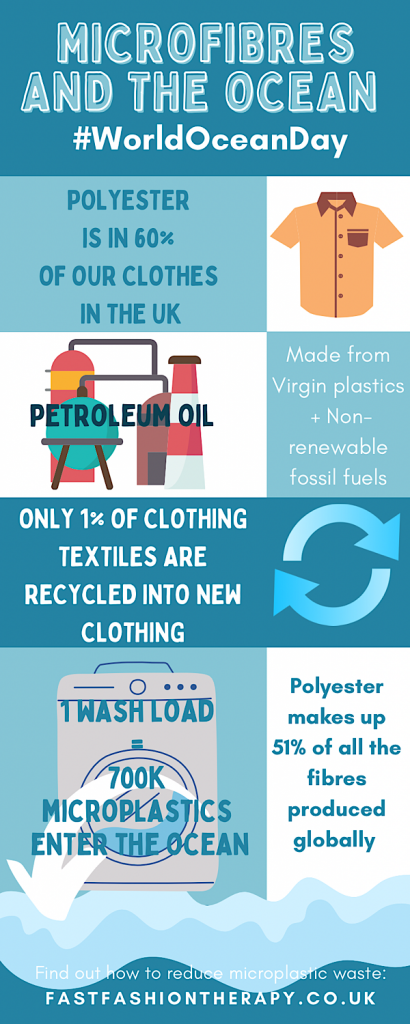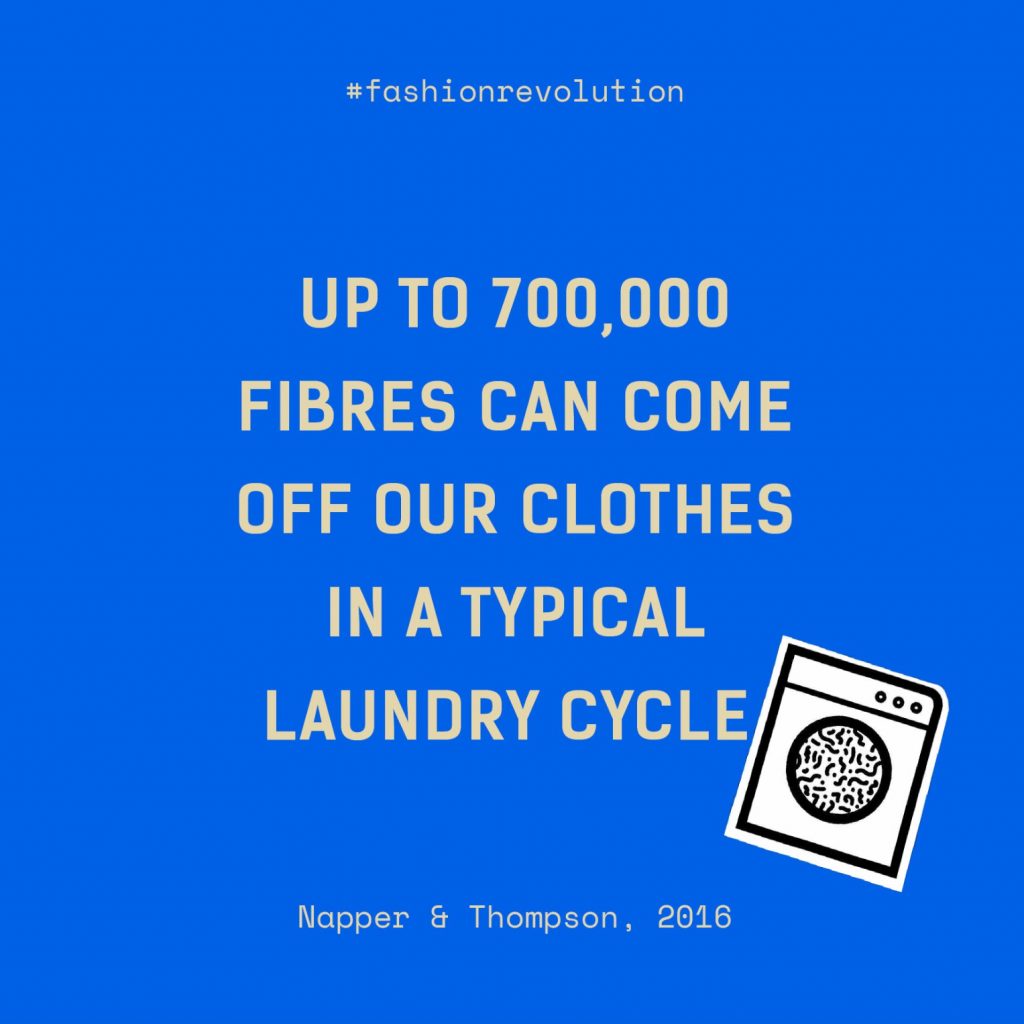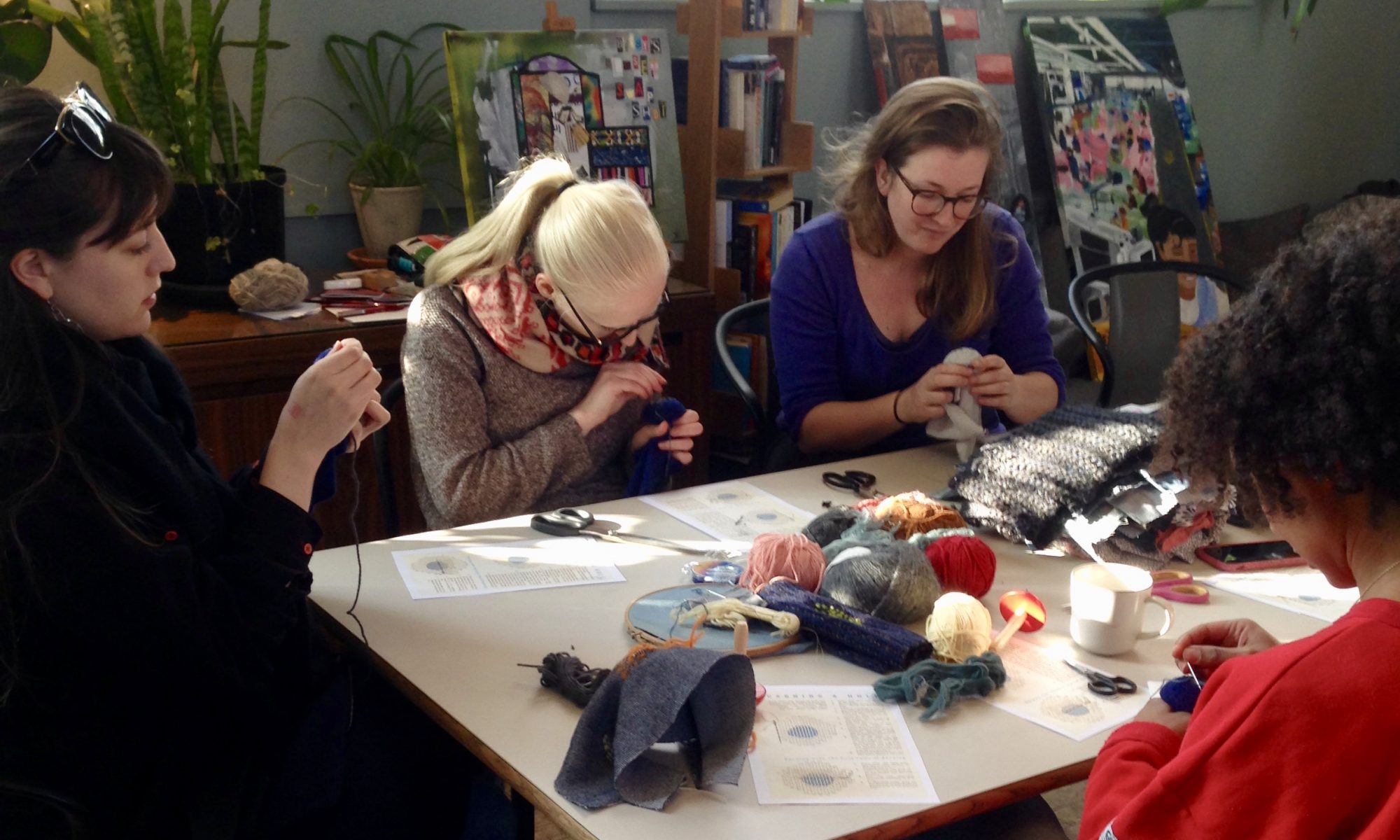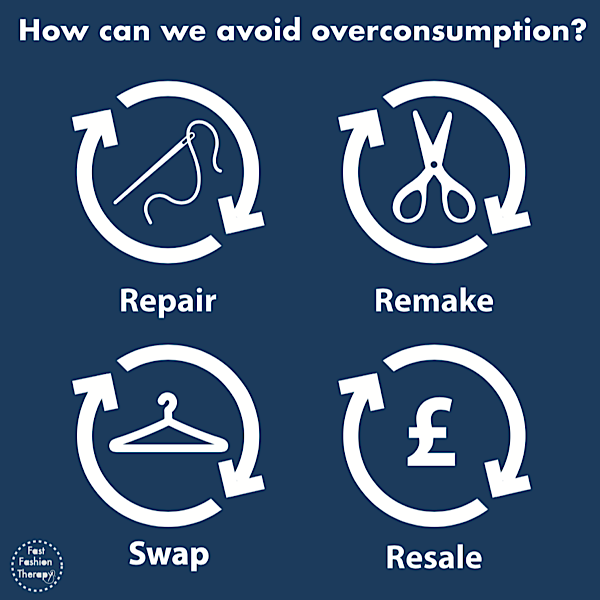For World Ocean Day
Today is World Ocean Day, the day where people around the world celebrate the oceans and seas that connects us all. As humans we have over polluted and over heated our seas for the past 100 years, if not more. At Fast Fashion Therapy, we have chosen to focus on the microplastic fibres that shred from our clothes into the ocean, causing damaging effects.
The main textile fibre to create micro plastics is Polyester. It might be known by other names in your clothes label. These are brand names from textile companies who have adapted the basic fibre. The general term is Polyester, which is a man-made synthetic Polymer.

Polyester is in 60% of our clothes in the UK and makes up 51% of all the fibres produced globally. It doesn’t require as much water to produce as Cotton but overall it has a more negative effect on our planet.
A polyester shirt has more than double the carbon footprint of a cotton shirt
Fixing Fashion, UK Government Audit Committee 2019
Plastic fibres have been in mass production since the middle of the 20th Century and increasing in use ever since. During 2019’s Fashion Question Time, Laura Balmond, Project Manager for Make Fashion Circular (Ellen MacArthur Foundation) stated ‘[In 2018] there were 100m tonnes of fibres that were produced for all textiles. Over 60% of those are plastic based so it is difficult to swap out like for like. Where would we find 60 billion tonnes of natural fibres from as soon as you needed them?’. It isn’t as simple as immediately swapping the global fibre production to a more sustainable source.
UK charity, WRAP, are funding projects to find new innovations in plastics recycling, including Polyester textiles. They are looking for a ‘state of the art’ solution to this growing problem. Currently, only 1% of textiles are recycled into new clothing, mostly because there isn’t the technology or the logistics to manage this. There is also the problem that once plastic (inc Polyester) has been recycled it is difficult to recycle it again as it becomes a much weaker substrate.

How to reduce Microplastic fibre waste
We don’t have to wait for this new technology, we can make a change now:
- Buy less new products, swapping to second hand clothes. Microplastic fibre waste will still be excreted from our clothes when we wash them but virgin materials are not required to create new clothes. Producing new clothes from Polyester causes negative environmental factors such as heat, chemicals and the use of non-replaceable fossil fuels.
- When washing fabrics that contain Polyester or other forms of plastic fibres use a Guppy Friend Bag. Or a similar brand. It helps prevent microplastics from reaching our oceans.
- Reduce the number of times clothes are washed. It isn’t necessary to wash clothes after every wear. Air the clothes by an open window or outside. Spot clean any stains.
- Repair damaged clothes rather than buying new. Need help? We host weekly workshops in London or join us for an online mend-a-long once a month. We have lots of ‘how to videos’ to help you too.
References
https://globalfashionagenda.com/pulse-of-the-fashion-industry-2018-report-released/#
https://publications.parliament.uk/pa/cm201719/cmselect/cmenvaud/1952/report-summary.html
http://www.wrap.org.uk/sites/files/wrap/valuing-our-clothes-the-cost-of-uk-fashion_WRAP.pdf

